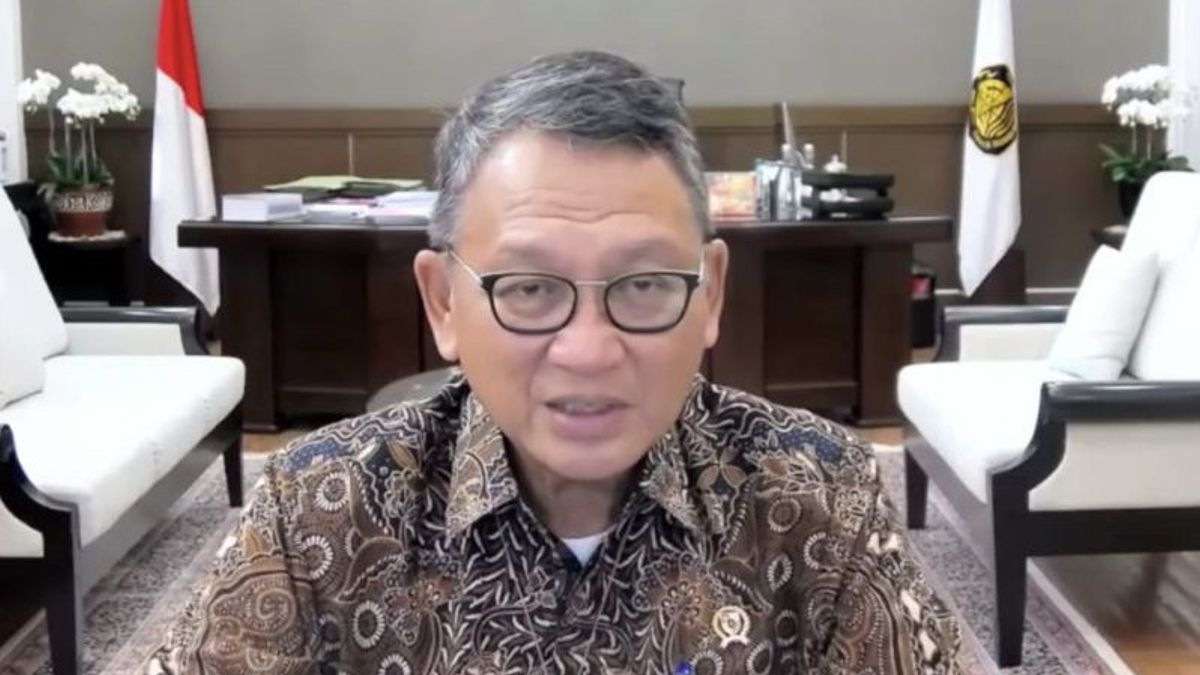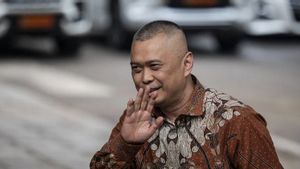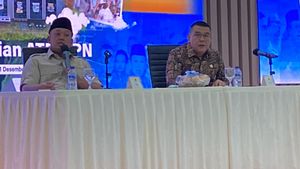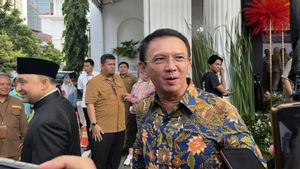JAKARTA - Minister of Energy and Mineral Resources (ESDM) Arifin Tasrif said the direction of the national energy policy in the future is the energy transition from fossils to minimal net energy emissions and environmentally friendly.
"Energy transition is needed to increase national energy security given the limited fossil fuel reserves," he said, quoted from Antara, Monday, August 29.
Arifin revealed that Indonesia still has a large potential for new and renewable energy (EBT) reaching more than 3,000 gigawatts from the solar, hydrogen, bioenergy, biomassa, geothermal, and also marine resources.
Therefore, the Ministry of Energy and Mineral Resources strongly supports the transition of energy centered on humans or people-centred energy transitions which includes not only transitions to cleaner energy, but also related to the provision of job opportunities and skills, improving social and economic development, equality and justice, and involving the community actively.
In providing access to clean energy, said Arifin, the Ministry of Energy and Mineral Resources has built a number of EBT infrastructures, especially in frontier areas, outermost, underdeveloped, and transmigration areas (4T), namely in the form of solar, micro-hydro, hybrid, biomassa power plants, energy-efficient solar lights, and lighting of public roads for solar power by using APBN funds and special allocation funds.
"The involvement of local governments and local communities is very crucial in the development of new and renewable energy infrastructure. The use of technology is appropriate and maintains the sustainability aspect of infrastructure," explained Arifin.
The Ministry of Energy and Mineral Resources noted that the national electrification ratio has reached 99.2 percent and still has 0.8 percent of people who have not enjoyed electricity.
Arifin said that there are still pitch-black villages and 3,090 sins whose electricity still uses energy-efficient solar lights (LTSHE) and it is necessary to get a more reliable and continuous electricity supply.
Support and participation from all parties, including the younger generation of Indonesia, is needed to improve the development of new and renewable energy and expand access to energy to the community.
In an effort to involve the younger generation of Indonesia, the Ministry of Energy and Mineral Resources has implemented the Patriot Energi program in collaboration with the Kerakyatan Institute of Business and Economy (IBEKA) foundation with the aim of utilizing local new renewable energy potential to provide reliable and continuous access to the community, especially in 4T areas.
Arifin appreciated the younger generation who joined the Patriot Energi who within 10 months had carried out their duties in remote areas.
They have been able to provide assistance in 98 villages located in 33 districts from 13 provinces by preparing prestudi for the feasibility of hydro-powered power plants in 14 villages, solar home systems in 12 villages, and solar PLTS in 67 villages, including development planning or revitalizing renewable energy plants in five villages.
"We hope that the results of the pre-feasibility study can be followed up by local governments, the private sector and the Ministry of Energy and Mineral Resources to build renewable energy plants, especially for people in the 4T area who have not yet felt electricity or who have received electricity that has not yet been continued," said Arifin.
The English, Chinese, Japanese, Arabic, and French versions are automatically generated by the AI. So there may still be inaccuracies in translating, please always see Indonesian as our main language. (system supported by DigitalSiber.id)













